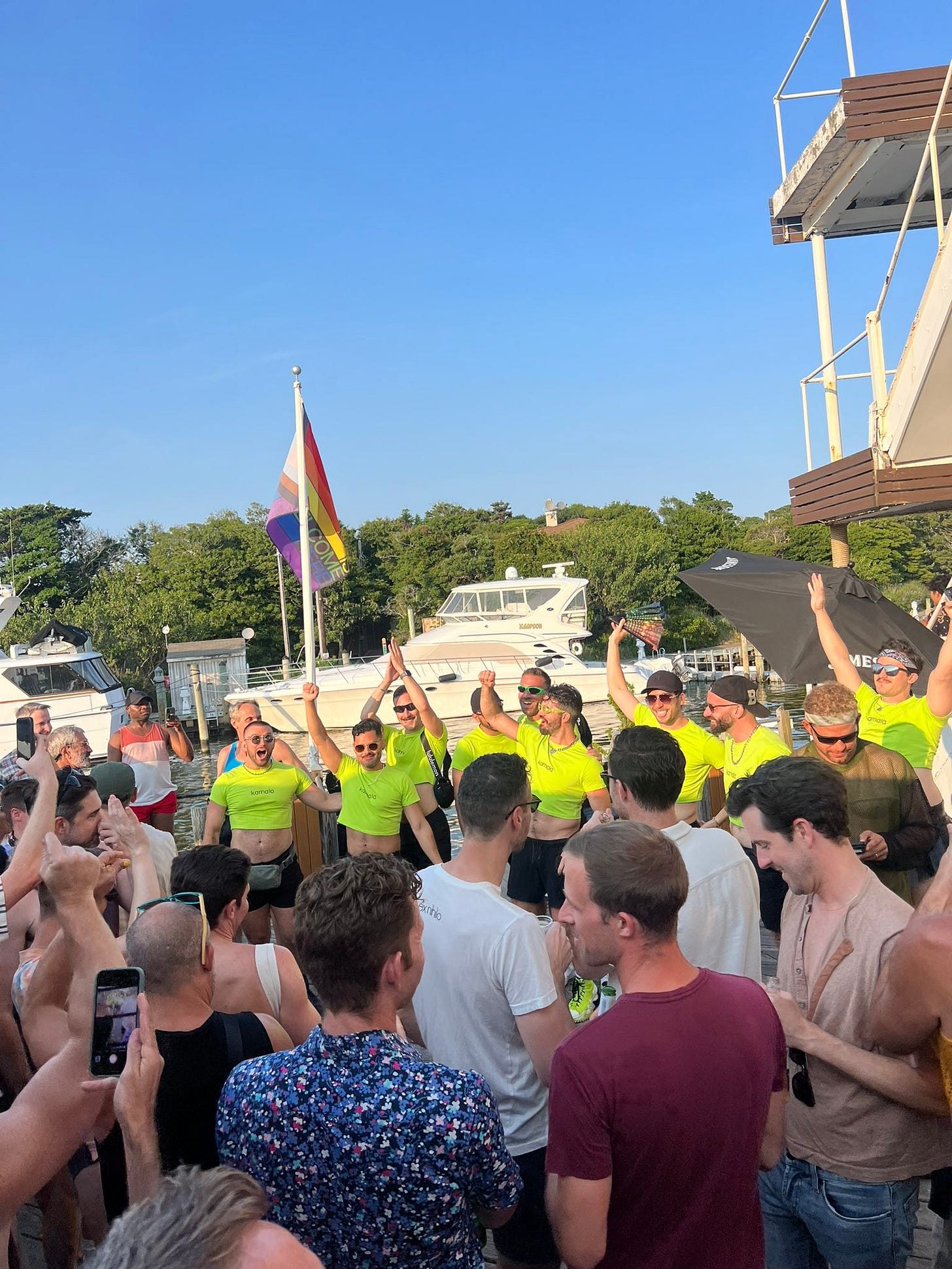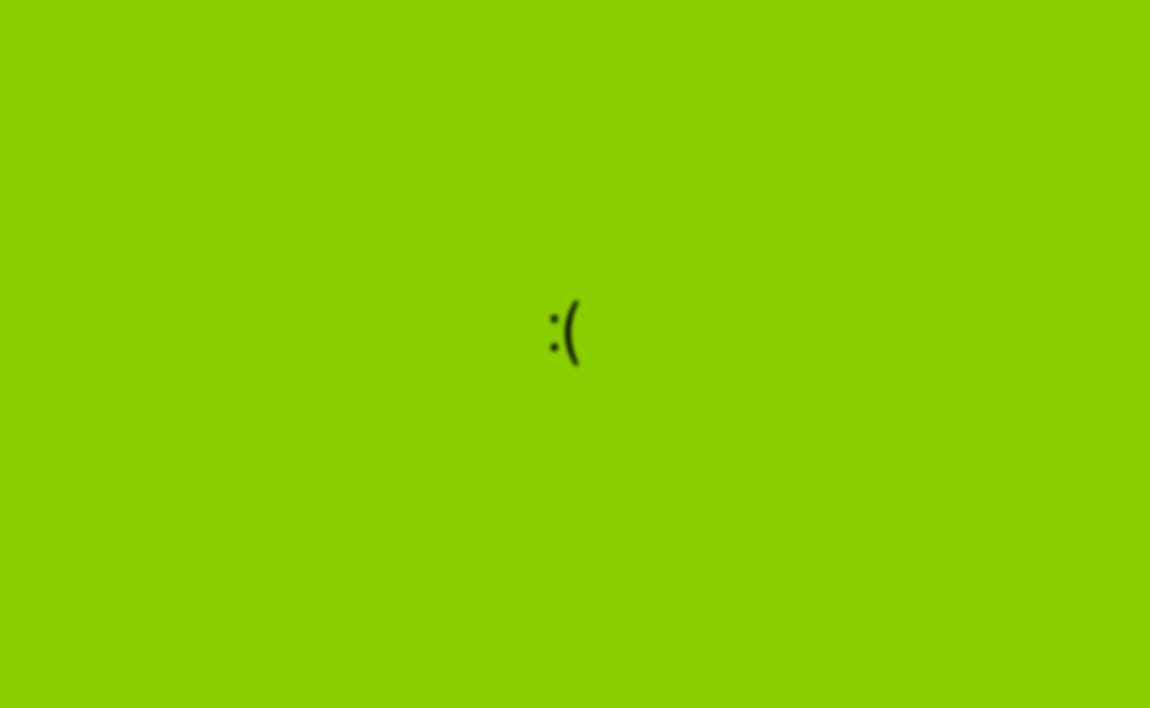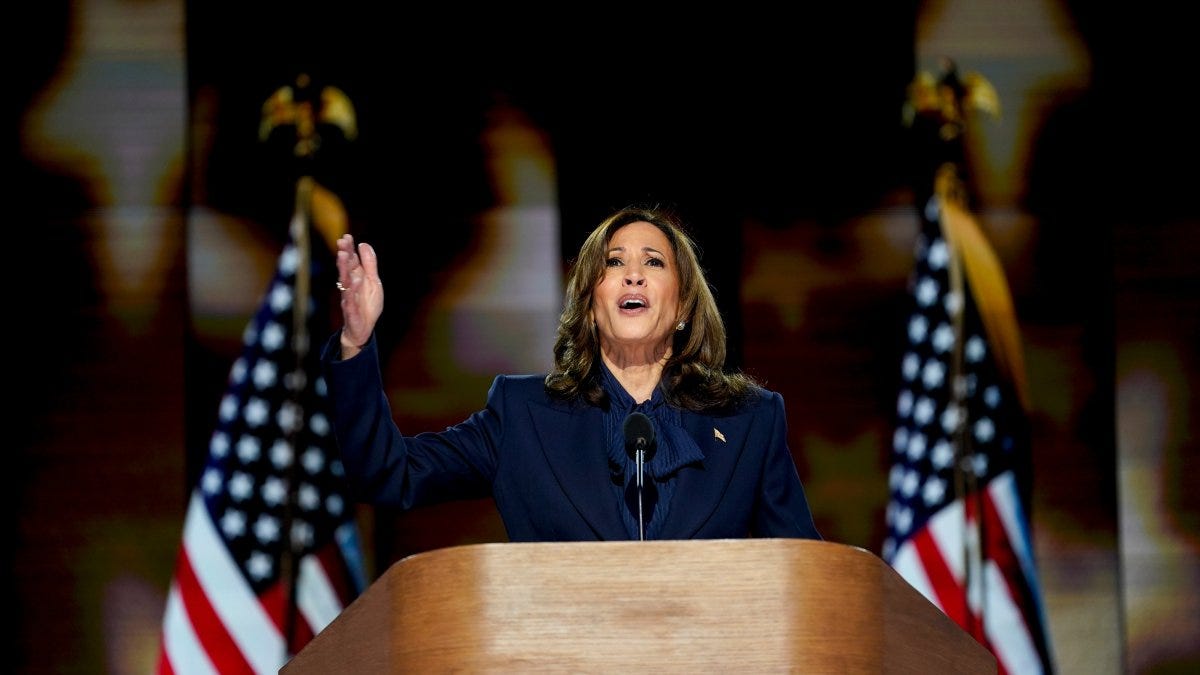Vibeocracy
Kamala is Brat. Brat is Kamala. I am going insane.
My favorite song on Charli XCX’s Brat is one of its least discussed. Practically every other track has been discoursed upon, meme’d and TikTokified. And then there’s B2B, in which Charli sings no more than a couple dozen words. “I don't wanna go back, back to back to, back to, back to, back to you.” That’s basically the entire song. It is two minutes and 59 seconds long. And, I think, it is a work of genius, and one that, despite its lyrical austerity, reveals more than any other track the thesis at the album’s core. And in doing so, it clues us in to exactly why Brat has become what it’s become—phenomenon, lesson in branding, and, strangely enough, part of a movement.
About halfway through B2B, the beat drops out and Charli begins repeating the word “back” over and over and over again. The word begins to syncopate from the music, falling slightly behind the synths. Back [synth] Back [synth] Back [synth], and so on. It’s as if Charli herself is falling backward, further and further away from the comforting coherency of 4/4 time. Then the drums creep in quietly, wooing her toward the beat again, and then bam—the breakdown: a new melody starts, and new lyrics, finally, too: “took a long time, breaking myself down, building myself up, repeating it”. Charli’s words and the synths and drums are now recoupled; in-sync. She’s back from falling backward.
It’s been surprising to watch just how much Brat has taken over culture; how much mainstream success it has garnered; how far it has surpassed its creator’s previous projects, most of which were relegated to being Gay Popular, not Actually Popular. A season was even named after it—Brat Summer—as if Brat is not just an album but a way of life.
Brat is, in my opinion, a great record, one I can listen to over and over again because it is filled with surprises and contains a sonic complexity and takes risks I haven’t heard in pop music in a long time. But it’s also weird—aurally and thematically dissonant; it asks a lot of its listeners, or at least a lot more than much of pop does. It’s fun, but it’s not easy listening. And so when it came out, I thought it’d do what a lot of albums adored by gays do: be played endlessly at the gay clubs, and at the pool parties of Fire Island, and nowhere else.
Instead, it’s become a not-insignificant part of U.S. politics.
Just a few hours after Joe Biden announced he would not seek reelection and endorsed Kamala Harris as his successor, Charli XCX tweeted out “kamala IS brat.” The tweet went viral, and was also met with a swift backlash from girls and gays proclaiming “Brat Summer” officially over—it had jumped the shark; Charli had sold out.
And to be sure, Charli endorsing the leader of the American empire and christening her with a term that until July 21 had mostly been associated with partying until 9am and doing drugs and being wild was unexpected. But perhaps more surprising was the fact that the Harris campaign immediately seemed to agree that Kamala was indeed “brat”—the campaign changed their header photo to a picture of the words “Kamala HQ” with the album’s signature green hue as the background and followed Charli on social media. They pushed out TikToks using the album’s music. Thousands of fans of Charli, or Kamala, or Charli and Kamala, made their own edits.
My first thought upon seeing Charli’s tweet, and its subsequent embrace by the Kamala campaign, was, “what the fuck is going on.”
But as Kamala’s nascent operation took shape, it began to make sense. There was, indeed, something…brat…about it. Sure, the memes. But something deeper too: Kamala was offering to beleaguered Americans a vision of their country and lives that was more exciting; a bit crazed for sure, but fun and freeing. And most importantly, the campaign pushed the idea of snapping people back to reality. After years of the country falling down the right-wing rabbit hole, Harris began to represent an opportunity to grab a lifeline and pull ourselves to stable ground again, back to comforting coherency. No more syncopation. That’s the gist of what’s become her most popular slogan, which has been chanted at every packed rally she’s spoken to: the crowd, often at first a bit behind Harris’s timing, trying to find her cadence, until they all get it together, shouting the same words over and over again: ”We’re not going back. We’re not going back. We’re not going back.”
Brat came out on June 7, 2024, and, if you can remember that far back, you’ll remember things were bleak. On that day, Biden walked very slowly, stumbling at times, to a stage in Normandy, France, to give a slurred speech to some elderly veterans about the importance of a strong American empire. In attendance was Antony Blinken, the Secretary of State who had over the past several months become the face of the U.S.’s unending support for Israel and its complete destruction of Gaza. The administration at that point seemed to mirror Biden’s physical state—semi-zombified. Biden and his lackeys were unwilling hear the growing throngs telling them the country was headed straight for a second Trump presidency; that the youth vote was disappearing—just one-third of young people said they were willing to support Biden, partially because of his response to Israel’s war.
The mood amongst friends had transformed over the preceding months from anger to something scarier—indifference. Trump, Biden, whatever. The country was headed toward destruction either way. There was little that could be done to save it, or us. Even mainstream liberals expressed a deep sense of defeat, not just for their electoral project, but within their own souls. I think it was legitimately hard for people, especially older people, to reckon with the fact that the party meant to represent them no longer had much interest in doing so. I remember talking to an older liberal close to me—one who had been rah rah about every Democratic election since I’d known her—about 2024, and her, to my surprise, saying: “I hope Biden just has a stroke and dies.”
So, June was bad. But the vibe rot had started long ago. Over the last few years, without an adequate counterbalance to the country’s right, everything proved capable of being pulled into its orbit. Elon Musk’s purchase of Twitter and subsequent overhaul of the algorithm to turn it into a pro-Nazi platform; the rise of young, far-right content creators like Andrew Tate and the Paul brothers; the country’s ever-growing obsession with policing trans people. Things didn’t just feel bleak, they were statistically so: young people, especially young men, were becoming more conservative, more nihilistic, more homophobic, more misogynistic.
Within that context in which we existed, I focused most of my energy on finding respites. Spaces in which I could feel in a reality different than the one we actually lived in—clubs and beaches and bars and, really, anywhere where Brat was likely to be playing. Brat had become the soundtrack of respite; an audio intermission from the drudgery and dread. An album best played at full volume—not background music, but brain-takeover music.
And in June, no matter what bar or club I’d go to, there’d be a Charli song playing. My friend’s birthday in a bar’s backyard, all of us at 2am having a little key and a little line and blasting Guess, one of the tracks from Brat’s extended version, and not even dancing really, but almost moshing. Pouring our tired bodies into each other, and then trying to will each other back to life, with Charli and the substances implicitly recommended by her music as our elixirs. That night was one of several that month that, with the help of Charli, felt like: wait, remember that life could feel good? Remember when we lived in a different reality?

A few days later, I skipped an important family event because in attendance would be some of those people I’d later find described aptly by Harris’s running mate Tim Walz as too weird; impossible to have dinner with because of their journey into the right wing media ecosystem. Instead, I officiated the wedding of two gay friends. Brat was played at their party. Of course.
I continued listening to the album nearly every day, nearly in its entirety each time. I needed the break from reality. The worse the world felt, the more crucial the album became to my sanity. Yes we were hurtling toward fascism, yes much of the summer was too hot to enjoy the outside world, but at least I could have this little pick-me-up; this sonic bump to get me through the day.
On the morning of July 13, I drove my mom to an errand and played two songs for her from the album—365 and Everything Is Romantic. She said she liked them; that even if it wasn’t for her, she understood the happy and clubby vibe. Later that day, someone tried to kill Donald Trump, the bullet missing his brain by inches. I saw the news on “X” and told my family. I expected shock. But, really, none of us felt it. It was just another day in a week, a month, a year, in which everything felt equally crazy, and thus not crazy at all. We were inured. We ate bad Mexican food and talked about anything else.
The next week was…fine. Work. Tennis. Drinks with an old friend, during which we both admitted, as if it were a shameful secret, just how much Brat meant to us; just how obsessed we’d become. We quietly practiced the Apple dance in the corner of the bar and hoped no one would notice. We texted over the next few days about two things: Charli, and whether Biden would actually drop out of the race.
And then it happened. He dropped out. He endorsed Kamala. And the vibe, it was said, shifted.
The excitement came in the form of dozens of text messages from family and friends. “Maybe we have a shot at winning this year!” “I know it’s cringe but I’m genuinely excited.” “Can I still be a socialist and be hopeful about this?” (That one was from me).
For me, the vibe shift was less about the election and more about feeling snapped back to a better reality. It had felt like the country had fallen so far; it had felt like we were watching history happen day after day, it always one step ahead of us. And with Kamala’s candidacy and her surprising choice of Walz—the one guy progressives and even leftists seemed to like, or at least tolerate—suddenly it was as if we were again a country that while, yes, deeply flawed, might actually make it.
Putting policy details (or lack thereof) of her potential administration aside, I allowed myself to believe the vibe shift was actually important—that it was potentially material. That the increasingly-hard-to-escape gravity of the far-right had suddenly been broken, and thus that what I searched for in my respites—pleasure, fellow queer people, a sense of belonging, would no longer be relegated to respites. That the respite could become reality.
“I have only partial faith in the ability of the Harris/Walz admin to make things better,” the writer and researcher Robert Evans wrote on X. “I have a lot more faith in their ability to drive a nail through the heart of the "anti-woke" culture war right, which has to die before anything significant can be fixed in this country.”
And that is what appeared to be happening: right-wingers were realizing they were losing their chokehold on the narrative, and it was driving them crazy. They accused Kamala of lying about her ethnicity. They accused Walz of providing tampons to people (?). Every accusation they threw at the Democrats boomeranged and made conservatives seem even weirder than before.
Though all of this excitement felt organic, it, of course, was not. Kamala had begun listening to a younger group of staffers known as, yes, the Brat Pack. And they’d pushed the campaign to focus more on storytelling and culture capture than on incremental policy wins. They argued that by giving people something to be excited about, by tapping into dormant emotions, they could convince a generation to drop their concerns about material politics and instead focus on buying into vibes.
It worked. Polls turned in Kamala’s favor, especially among young people.
And then, of course, it turned out that vibes did not mean much.
Harris’s speech at the Democratic National Convention in Chicago felt as if it could have been Biden’s. Or Reagan’s. The laughing and the coconut-pilling was gone, replaced with a stark vision of America as an imperial power with the most “lethal fighting force in the world.” Ruwa Romman, an uncommitted delegate, was barred from speaking on the DNC stage, presumably because what she would have said would not jive well with Kamala’s insistence that there be no red line for Israel, no stop to the flow of billions of dollars worth of weapons from the U.S.—ones currently being deployed to enable a genocide. People came back from the DNC with Covid, another thing not done away with by policy but through a trick of language—we, or the Democrats really, said the pandemic was over long ago, and so it is, even if it is not.
I’d like to say the DNC changed things—that the vibes created by Kamala and her staff were deflated by her, or our, sudden remembrance of who she really is, and what she really represents. But it did not. Polls are still trending in her favor. There are still memes being made.
And yet I would be lying if I said I do not feel differently now than I did a month ago. A vibe shift is a powerful thing, even if you can see right through it.
On July 29, three days after my birthday, I walked down the car-free, tree-lined boardwalks of Fire Island, toward the ferry that would take me home to the city. The weekend had been remarkable—many new friends made, many good times had. I smiled at each of the older gay couples I passed and they smiled back. And somewhere in the distance, from one of the multi-million dollar houses on either side of me, one I presume was rented by ten to fifteen young and semi-broke queer people sharing rooms, each buying their way, a day or two at a time, into a taste of the good life, I heard 365, the last track on Brat, playing.
The song is a reprisal of the first track on the album—360, which is an upbeat anthem about confidence and being the shit and partying and all that. 365 is different. It begins relatively light, and then gets heavier and heavier, shifting into a minor key, until, at the end, the track is enveloped by synths so dark and distorted they feel as if they’ll make you disintegrate simply by ingesting them.
And then you’re back on the mainland and you realize that the respite from reality was just that. A respite. And now it is raining so hard that your car almost floods and you have to stop on the side of the road and you think about how these kinds of rains never happened when you were a kid. And when you can finally start your car again, you drive down the Long Island Expressway, and you think about putting on NPR, but you instead put on Brat. And you wonder when you’ll get sick of it.





I too was getting high on the Kamala Vibe, for me it shifted at the convention when they refused to let a Palestinian speak. I'll still vote for her, because now that there's a chance to defeat Trump once and for all, I'm committed to it. But I'm sober again, and I'm angry at what we are allowing to happen to our sisters and brothers in Palestine.
Woof. I also listened to Brat on Fire Island on my own vacation from reality this summer. That week ended the day Biden stepped down. I haven't listened to it since. It feels like this short lived era that's now over.
There's still is a part of me that's just like, can't we just have this? Can't we have this silly fun album about partying without thinking about all the horrible shit in the world? Apparently not!